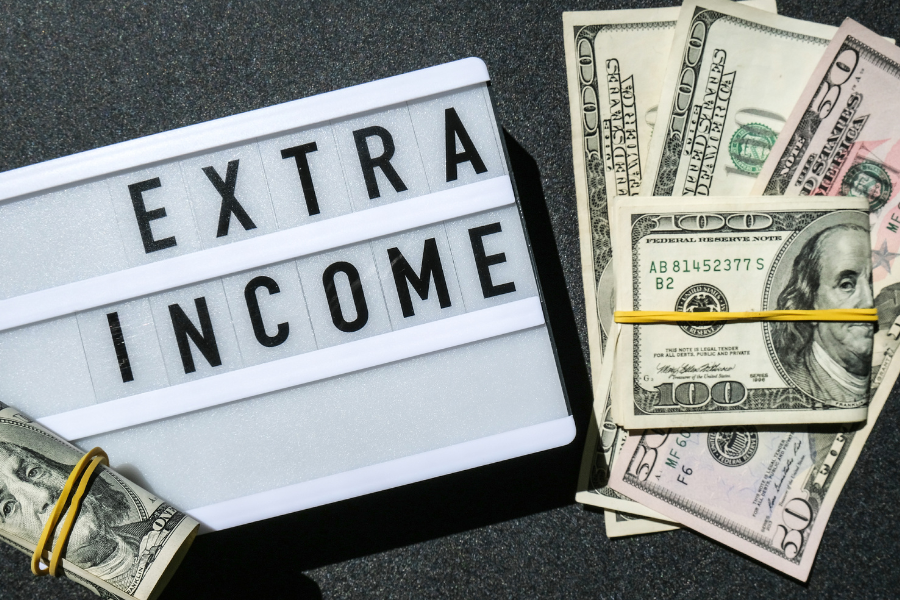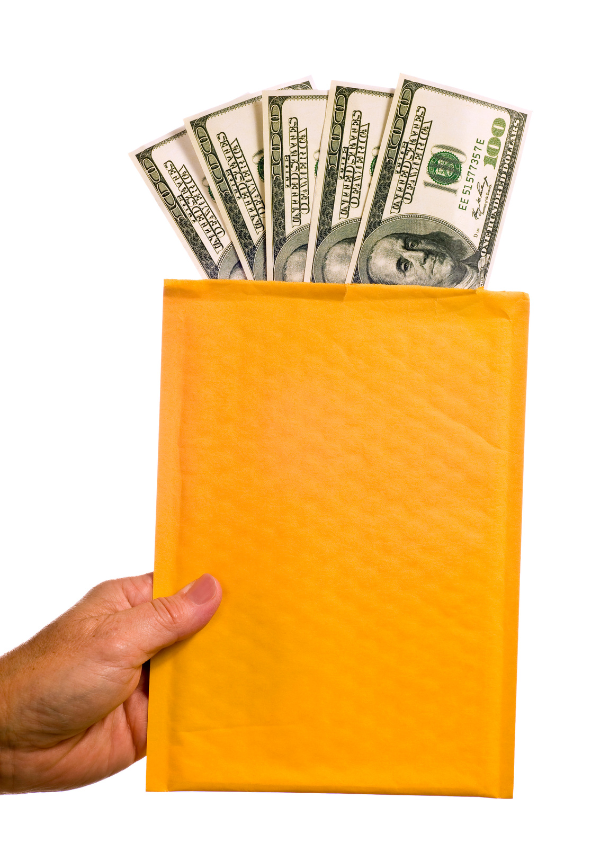
Over the course of the next year I plan on paying off about $42,000 in debt. I am going to walk you step by step through my plan to make this happen.
Between my full time job and part-time job, I have a base salary of about $80,000. I have around $30,000 in debt with a 401(k) loan, and about $12,000 in debt through my HELOC.
My regular expenses include my mortgage, car insurance and repairs, gas, electric, water bills, Wi-Fi, groceries, and pet supplies, along with a few “wants” including a wine club membership, HP printer membership, and a Weight Watchers membership.
So how do I plan to pay off debt that is almost half of my salary? Let’s dive in!
Strict Budgeting

I am a firm believer that having a budget helps you make better money habits. I used the same budget for years and was extremely successful at saving money.
After I started working a significant amount of overtime, my budget fell away. To this date I’m not exactly sure where thousands of dollars went.
Fast forward a couple of years to my realization that I needed to get back to a budget. I revamped everything, planned all of my expenses, and focused on saving money.
With my new debt payoff goal, it’s time for a new budget. I realized my old budget would not work with this goal, so I started from scratch and set up a nice plan that will both fill up my sinking funds and pay off my loans.
For more information on sinking funds, check here!
How can you get your budget going?
- Write out all of your income and expenses
- Prioritize needs over wants
- Determine your goals – debt payoff? Savings? Investing? Build your goal into your budget
- Be realistic
- Implement
This all makes it sound nice and easy, doesn’t it? Starting a new budget can be difficult, especially if you don’t already know some of your finances. Here are some tips to help you get started:
- For two months, write down all of your income and expenses. This helps you break down the time you’d spend building your budget. Instead of going back and spending a significant amount of time going through bank accounts, bills and statements, you can log items as they come up and after a couple of months you will have a good idea of your budget.
- Include planned expenses that don’t occur often. Maybe your water bill is every three months, or you pay your car insurance annually. Be sure to calculate the monthly amount of these and include them in your budget.
- Create a goal priority list. If you have multiple goals, it’s important to prioritize them, especially if you don’t have enough money coming in for each goal. By giving each one a priority, you can determine how much to put in each category, or choose to hold off on some while you prioritize others
These are just a few of many tips to help you on your budgeting journey. It doesn’t have to be overwhelming, but it does have to be done and match your goals. For example, it doesn’t help you to prioritize investing if you’re trying to save for a house.
Extra Income

I am fortunate to have an opportunity to work overtime at my primary job. It is not consistent and some weeks I get more hours than others, but every little extra bit helps and goes straight toward my debt! (Okay, that’s not strictly true. Because I use a standard percentage deduction for retirement from my checks, 10% of my overtime goes to my 457(b).)
Maybe you don’t have the opportunity to work overtime, or maybe you’re limited in your working hours. Here are some other ideas to help you earn extra income:
- Donate plasma- I try to do this at least once a week, but you can do it twice in seven days. If I donate all month, I can usually make an extra $400. I donate at CSL Plasma.
- Uber/DoorDash– these companies still need drivers. While I have not done this myself yet because I do currently get overtime, it can be a great way to hustle and make a quick buck. The first time my friend tried it she made about $10 an hour, but the more you learn about high times, best practices and better areas to shop, the more money you might make.
- Odd jobs- some cities have sites like TaskRabbit or Craigslist Ads, where people without specific skills are looking for someone with skills. Sometimes you don’t need any skills at all, someone is just looking for an extra hand! You could spend a few hours removing someone’s fridge, putting a bed together, or doing a one time mow job. At the end of it, you’ll have some extra cash.
- Part time gigs – if you consistently have extra hours in your day, picking up a simple part-time job can help escalate your debt payoff that much quicker. I work two days a week at my part-time job which helps me put almost $800 extra towards my debt every month.
- Online sales- I wanted to leave this one off the list, since I have not found success in it yet (I run an Etsy store that is not making profit after a year and a half), but thousands of people have found success generating extra income with this, so I wanted to mention it. You could open a Shopify or Etsy store and sell shirts, mugs, digital products and more to earn some extra income. It’s not as easy as it sounds, but if you’ve got an eye for these things and an idea how to market, it could be the perfect opportunity for you (and if you find success, feel free to drop me some hints 😉)
For a guide on 13 of my favorite side hustles, check out my article here!
Telling Everyone

I’m telling everyone, and I mean EVERYONE in my life that I’m working on paying off debt, as soon as it comes up. Family, friends, coworkers, random strangers on the street….
Okay, maybe not the last one.
By letting everyone know, I hope to help my journey in two different ways:
- Holding myself accountable: if everyone knows what I’m doing, I need to do it right? How disappointing would it be if I told everyone I was prioritizing debt payoff and then went and got a new car loan?
- Preventing pressure from others: I told my coworkers I would let them know when I’m willing to order out again. I told my family I would be cutting back on spending. I asked my friends if we could start doing some free activities rather than meeting at restaurants or doing costly activities. Don’t get me wrong, I’m keeping a small fund for going out, but I will be cutting way back.
Using Sinking Funds to Save

You may be thinking, what does sinking funds have to do with paying off debt? For me, sinking funds are perhaps the most important part. First, let’s address what sinking funds are. A sinking fund is when you set aside a fixed amount of money to pay for a planned expense that will come up in the future. Some of the best examples are car insurance and birthday presents. Here are the sinking funds I currently have set up:
- Car insurance
- Christmas presents
- Birthday presents
- Book publishing
- Vacation
- House repairs
- Car repairs/expenses
Besides this, I have $1,000 saved as a backup fund in case any of these does not have enough to cover an expense.
So how do sinking funds help me pay off nearly $42,000 in debt? With these savings built into my budget, I don’t have to worry about them. Each month, as I calculate how much extra income I can allocate towards my debt payoff journey, I don’t have to think about gift money or my car insurance bill a year later, because the money is already being saved. That means, any money left over at the end can go towards my debt, and I will still be able to take care of these expenses when they come up.
In addition to helping with my peace of mind, sinking funds have helped me keep a solid budget. With all of my expenses taken care of, I don’t hesitate to put every extra dollar I earn toward debt repayment.
Conclusion

The most important thing to remember is to cut ourselves some slack. It’s okay to go off budget once in a while, as long as it’s not by too much, and you get back on track the next day. Keeping focusing on my debt payoff will make my financial picture so much stronger in the future.
Paying off this debt is going to be a long, hard journey, but I know at the end I’ll be grateful I did this.
If you have any debt lingering, no matter the amount, and would like to pay it off as quickly as possible, take some time to look at your own journey. Can you implement any of the above ideas? Are you willing to make some sacrifices? I certainly am, because at the end of the year, I will be much further along on my journey to financial freedom.





